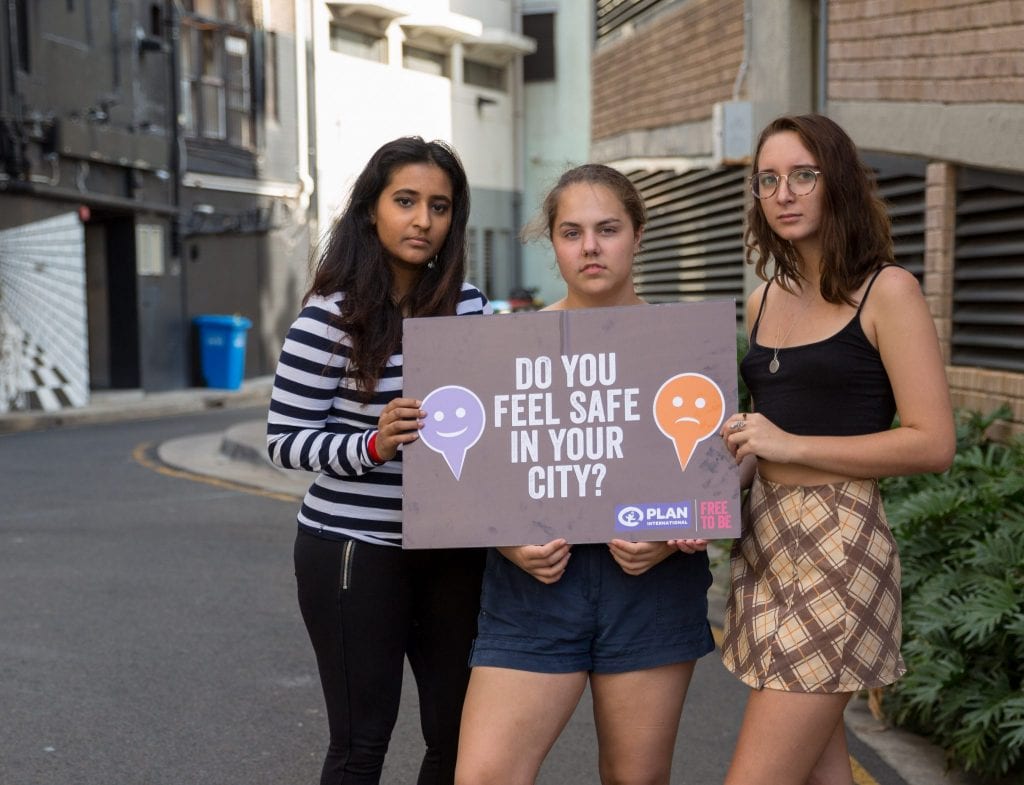As women we are forced to navigate the streets in a different mode to men. Our senses are always alert, we anxiously anticipate our next move should something occur, and we call our friends and family in the process of walking to ensure someone knows where we are.
We are cautious and apprehensive. All The. Time.
In fact, the vast majority of young women aged 18-25 surveyed in research conducted by Plan International Australia, (90%) said they felt unsafe on the streets of Sydney at night, while a further 92% expressed feeling uncomfortable taking public transport alone after dark. Of those, one in three (35%) said they always felt unsafe on public transport at night.
And because of this, women are missing out. More than half of respondents (57%) reported they’d cancelled plans to go out at one time or another because of safety concerns.
The statistics are stark.
Thankfully however, Plan International Australia in partnership with CrowdSpot and Monash University isn’t sitting back and accepting the status quo. This morning, they unveiled the Free to Be map–allowing young women and girls to drop a ‘good’ pin on the locations in the city that they like and a ‘bad’ pin on the areas where they feel uncomfortable or unsafe.
And this campaign isn’t just a local venture. Indeed, Sydney is just one of five cities worldwide where the Free to Be map launches today, including: Delhi, Kampala, Lima, and Madrid. According to Plan International Australia, the campaign is “believed to be the most ambitious crowdsourced data collection project to combat street harassment ever undertaken.”
A pilot safety map was launched in Melbourne in 2016 and received thousands of responses from young female residents. Susanne Legena, CEO of Plan International Australia said the pilot campaign had confirmed the need for a greater rollout.
“What surprised us about the Melbourne map was the scale and severity of incidents described by young women and just how common those were, whether it’s stalking, intimidation, being cat-called and even serious assaults,” she said. “We expect we’ll see a similar result in Sydney. This should be a light bulb moment for anyone with a stake in city planning and safety that we need to make big changes to make our cities welcoming spaces for everyone, not just for some.
Legena believes there is a significant onus on government to take street harassment and crime more seriously in terms of policy-framework.
“Street harassment is a bigger issue in our country than we like to acknowledge. It has become so common that it’s seen as part of the daily experience of a woman,” she explains.
“We want to bring the issue into the light and send a message that, actually, it’s not okay, it should never be just tolerated as a part of the normal day to day female experience, and something has to be done to shift the culture that allows this behaviour to thrive,” she says.
She hopes the data accrued from this initiative will help to propel government authorities to take the issue more seriously and enact change.
“This data will be provided to city planners, public transport authorities, police and groups responsible for urban safety, so they can make positive changes to make cities safer places for women.”
You can find out more about the campaign here.


